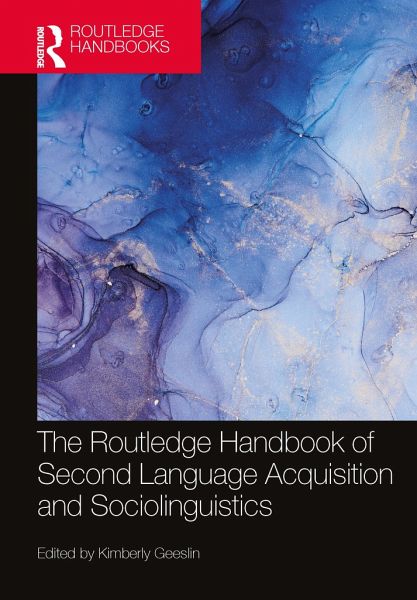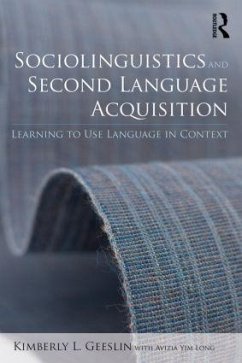
The Routledge Handbook of Second Language Acquisition and Sociolinguistics
Versandkostenfrei!
Versandfertig in 6-10 Tagen
245,99 €
inkl. MwSt.

PAYBACK Punkte
123 °P sammeln!
This state-of-the-art volume offers a comprehensive, accessible, and uniquely interdisciplinary examination of social factors' role in second language acquisition (SLA) through different theoretical paradigms, methodological traditions, populations, contexts, and language groups. Top scholars from around the world synthesize current and past work, contextualize the central issues, and set the future research agenda on second language variation, including languages studied or taught less commonly. This will be an indispensable resource to scholars and advanced students of SLA, applied linguisti...
This state-of-the-art volume offers a comprehensive, accessible, and uniquely interdisciplinary examination of social factors' role in second language acquisition (SLA) through different theoretical paradigms, methodological traditions, populations, contexts, and language groups. Top scholars from around the world synthesize current and past work, contextualize the central issues, and set the future research agenda on second language variation, including languages studied or taught less commonly. This will be an indispensable resource to scholars and advanced students of SLA, applied linguistics, education, and other fields interested in the social aspects of language learning in research practice and instruction.












